How Red Driving School steered away from a crisis
- Published
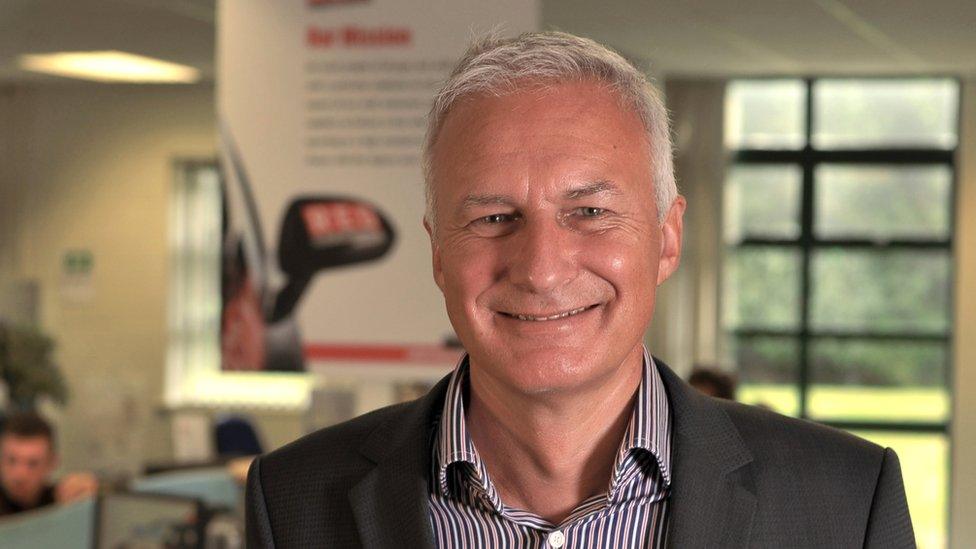
Ian McIntosh became boss of Red Driving School in 2012
Would you quit a stable, well-paid corporate job to become the boss of a failing driving school chain?
Ian McIntosh did that in 2012, when he became chief executive of Red Driving School, and admits it was a "pretty big gamble".
The firm was not only running at a loss, it had run out of cash, despite having been rescued from administration just two years earlier.
If its investors hadn't propped it up, it would have gone under, Mr McIntosh says.
"There wasn't a day during that first year that I didn't question whether the business would survive."
It was a desire to "have a stake in something" that convinced him to take the leap, the laidback Yorkshireman says.
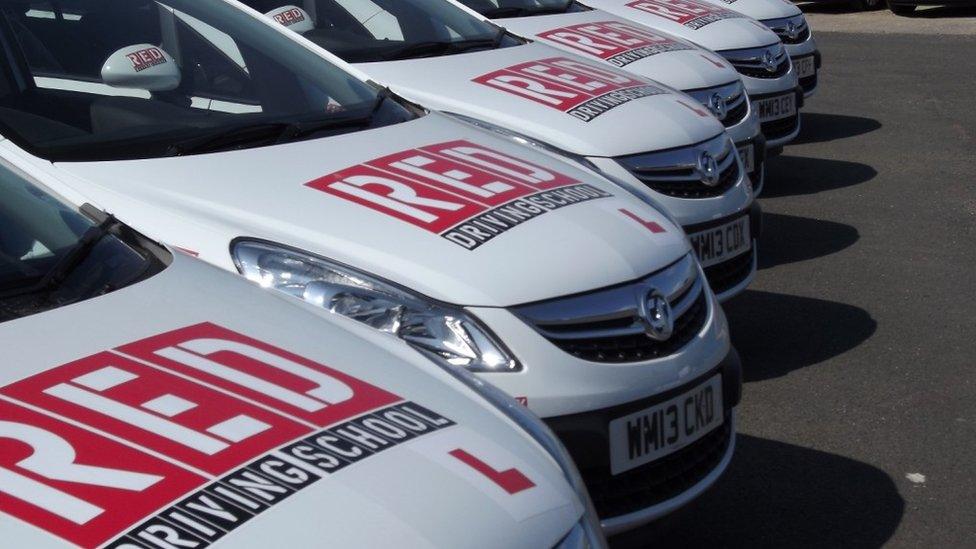
The company says the fall in the pound had made it more expensive to lease its cars
He had climbed high in his career in the food industry, but had never been a chief executive, or owned his own business.
In this case he got both - buying an 11% stake in Red, the value of which he declines to share but says was "pretty substantial".
"I had missed the opportunity to own my own business earlier in my career because I had a mortgage to pay and a family to feed. But I was ready to take the risk and sure I could turn this business around."
Six years later and Mr McIntosh's bet has paid off. Not only has the 60-year-old pulled off a nifty three-point turn at Red, returning the business to growth, he's also avoided his fair share of scrapes en route.
Before Red he spent two decades working for big manufacturers - first as a senior manager at chocolate firm Mars, then as president for the Americas and Europe at AAK, the Scandinavian vegetable oil maker.
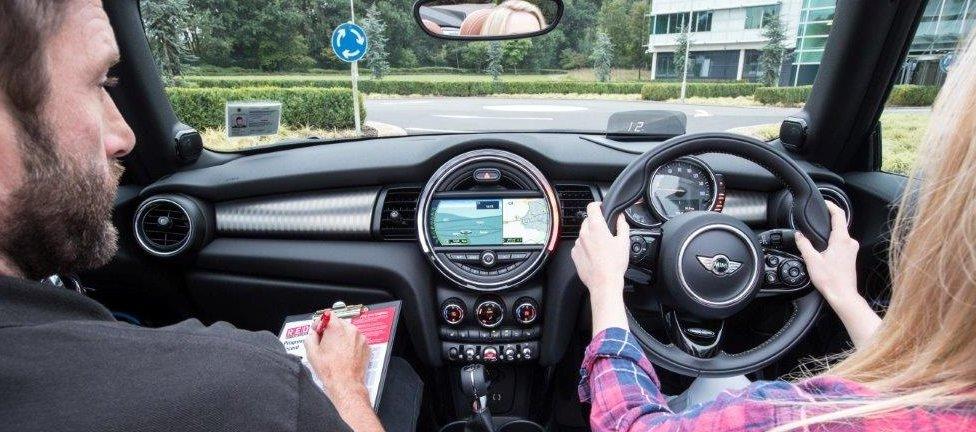
Red has more than 1,400 instructors
He says he was "very well paid" with "good bonuses and incentives", but it was time for a change.
He certainly got that at Red - when he joined it was in "dire straits" and went on to lose £1m that year.
"It was totally unlike the corporate world I was used to. There was no golden parachute in my contract to protect me if things went wrong. And of course I had invested my own money," Mr McIntosh says.
Within six months he says he had come up with a turnaround plan for the business.
The first big change was to fix the firm's payment collection systems. Red's customers typically paid in cash at the time of the lesson, but this was causing problems. Quibbles over costs between customers and instructors were common.
And customers felt less committed to turn up for a lesson, often leaving the instructor and Red out of pocket.
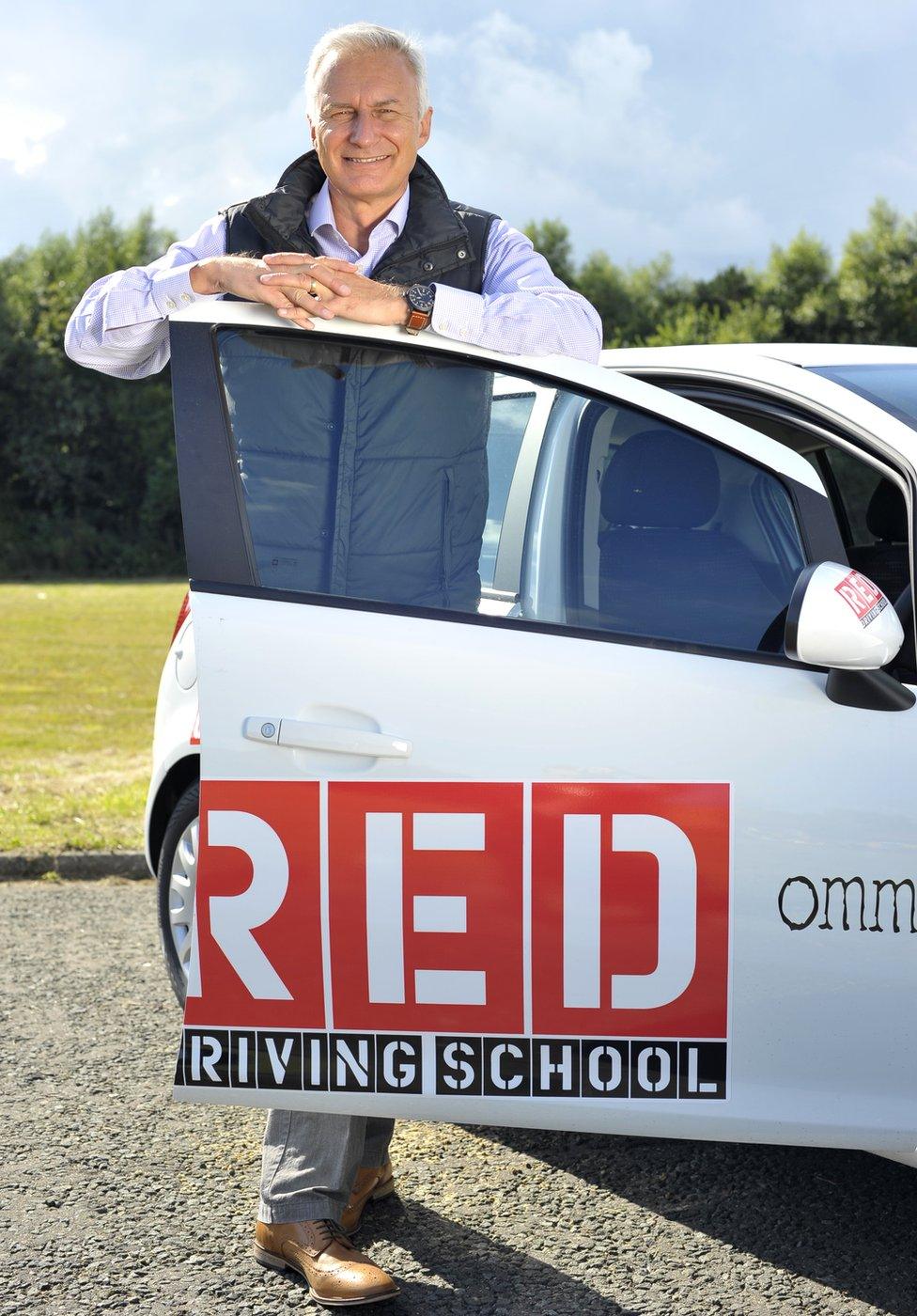
Mr McIntosh has returned the business to growth
Now all customers pay in advance online, Mr McIntosh says.
"It means the customer is protected, our reputation is protected and the instructor doesn't have to worry about getting paid."
Red also had "far too many people on its payroll who just weren't contributing enough", which led Mr McIntosh to cut 400 jobs.
It now has just 90 full timers at its Middlesbrough offices, along with around 1,400 instructors and instructor-trainers who work as franchisees.
"It's always difficult letting people go, but I made sure we selected people fairly and the reasons were explained. We were as compassionate as we could be in terms of compensation," Mr McIntosh says.
By 2014 things were improving but Red's backers, the private equity firm Kelso Place Asset Management, were unconvinced.
"In late 2014 we got a VAT bill due in January and there was no way we were going to be able to pay it," Mr McIntosh says.

More The Boss features, which every week profile a different business leader from around the world:
How a rugby injury led to a successful business career
Hollywood's go-to visual effects company

"That was the point where the private equity firm thought we'd go under - but I knew we'd be fine. I spoke to HMRC and they gave us time to pay."
Since then Red has reported "steady" profit growth in each of the past three years. In its most recent financial year it made sales of £11.5m and a £1.2m profit.
It has also become Britain's largest driving school in terms of instructors on the road, although Mr McIntosh admits its share of the total market remains small.
Paul Caddick is editor of Intelligent Instructor, a magazine for the driving school industry. He says Red is now in a good position to "withstand the natural ups and downs" of the market and hang onto its position as a leading national franchise.
He also praises its marketing - including the way it has highlighted young celebrities learning to drive with Red, such as Games of Thrones star Maisie Williams.
Allow Instagram content?
This article contains content provided by Instagram. We ask for your permission before anything is loaded, as they may be using cookies and other technologies. You may want to read Meta’s Instagram cookie policy, external and privacy policy, external before accepting. To view this content choose ‘accept and continue’.
Allow Instagram content?
This article contains content provided by Instagram. We ask for your permission before anything is loaded, as they may be using cookies and other technologies. You may want to read Meta’s Instagram cookie policy, external and privacy policy, external before accepting. To view this content choose ‘accept and continue’.
The firm still faces challenges, though.
"Driving schools can be a difficult business to make much money from - people don't want to pay much for driving lessons, even though it is probably the most dangerous thing any of us will ever partake in," Mr Caddick says.
He adds: "The problem going forward is that young people do not aspire to getting a driving licence with the same vigour as previous generations.
"Social media, debt and an acceptance of living with parents for longer has made learning to drive less of a rite of passage and a means of escape from parental control."
Due to the fall in the pound since the EU referendum, Red has to pay more to lease the cars its instructors use - a trend Mr McIntosh fears could continue after the UK leaves the bloc.
And much, much further down the road, autonomous vehicles could cause huge disruption, even spelling "the end of driving instruction as we know it", Mr Caddick says.
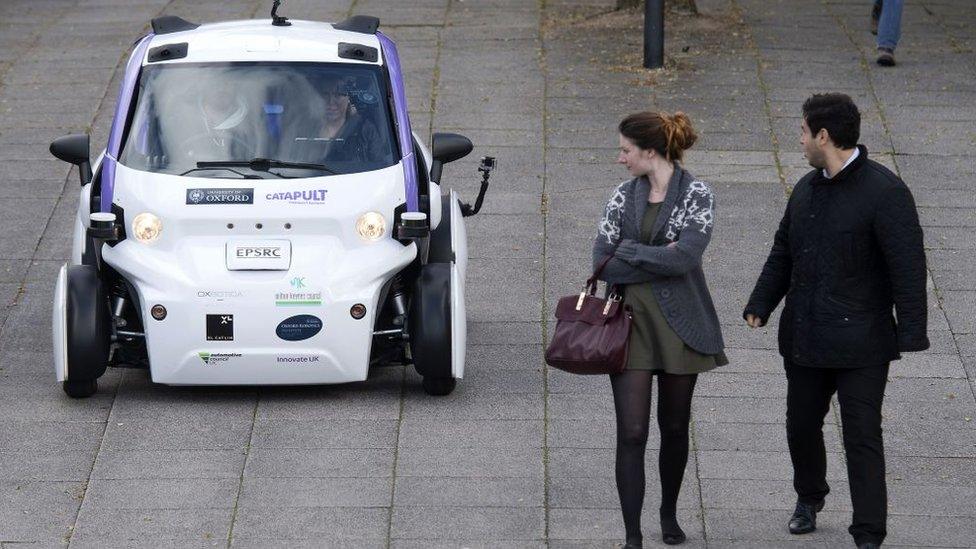
Some warn driverless cars could mean the end of driving schools as we know them
Mr McIntosh says he's not worried about new technology, though.
"Autonomous cars are coming, I'm not a Luddite," he says.
However, he believes that for years to come, driverless cars will need to have a fully qualified driver behind the wheel to take over in case of an emergency.
"And that fully qualified driver is going to have to be more highly trained than current drivers who are driving vehicles that have really been unchanged for 70 to 80 years. We've already changed our training to reflect the use of sat navs and we will do the same as other technology comes in."
During Red's darkest days Mr McIntosh says he always kept a cool head.
"Staying calm in a crisis has always been me to a certain extent. Some people run around like headless chickens, but in reality that is the time to be calm, that is the time to work to a plan."
His top tip for aspiring mangers is to be reflective.
"You can have yourself psychoanalysed to work out your weaknesses, but I always say you should be able to self reflect and say, 'I'm not very good at this, I'll work on it'.
"You can get better as you go, as long as you're honest with yourself."
- Published12 March 2018
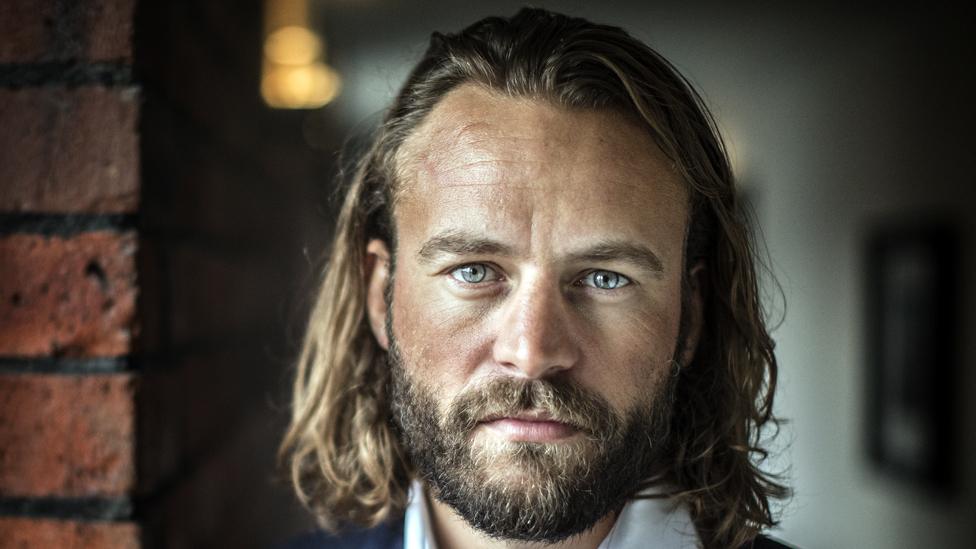
- Published5 March 2018
